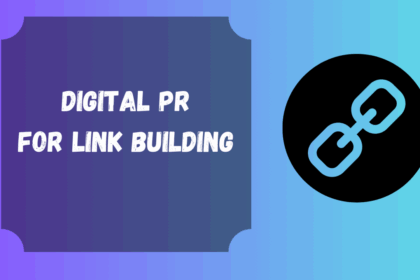In 2025, digital marketing continues to evolve toward integration rather than siloed strategies. One of the most powerful combinations gaining momentum is the fusion of SEO and influencer marketing. While traditionally treated as separate channels—SEO for long-term search visibility, influencers for rapid audience engagement—marketers are now discovering that merging these tactics creates a synergistic effect that amplifies reach, authority, and conversions.
This hybrid approach leverages the best of both worlds: the trust and reach of influencers with the long-lasting visibility of search-optimized content. In this article, we’ll explore how to effectively combine SEO with influencer marketing to build a high-performing digital strategy.
Why Combine SEO and Influencer Marketing?

At their core, both SEO and influencer marketing aim to drive qualified traffic and build brand authority—but they do so in different ways:
- SEO builds organic traffic through content that ranks well on search engines.
- Influencer marketing leverages trusted voices to drive brand awareness and social proof.
Together, they can:
- Improve your domain authority with high-quality backlinks.
- Increase content visibility through influencer amplification.
- Enhance brand credibility in both search and social ecosystems.
- Deliver content that ranks and resonates.
Key Benefits of a Hybrid Strategy

1. Link Building Through Influencers
Influencers—especially bloggers, YouTubers, and niche experts—often own high-authority domains. When they link back to your site in reviews, tutorials, or interviews, you gain high-quality backlinks that directly impact your SEO rankings.
- Example: A SaaS brand partners with a tech YouTuber who links to the product landing page in the video description and accompanying blog post, improving both referral traffic and search rankings.
2. Searchable Social Content
Social media posts by influencers often appear in Google search results, especially on platforms like YouTube, TikTok, and Pinterest. When content is optimized with searchable keywords, hashtags, and structured data, it increases your digital footprint across channels.
- Tip: Use keyword research to guide influencer content topics so they align with what your audience is actively searching for.
3. User-Generated SEO Assets
Influencer content—testimonials, tutorials, unboxings—can be repurposed into SEO-optimized blog posts, case studies, or product pages.
- Example: An influencer’s Instagram caption praising your skincare product can become part of an “Expert Tips” section on a blog post targeting “how to reduce acne naturally.”
4. Increased Dwell Time and Engagement
Visitors arriving from influencer content are often more engaged and spend more time exploring your site. These behavior signals (lower bounce rate, longer session duration) are known to positively impact SEO over time.
How to Build a Hybrid SEO + Influencer Strategy

1. Align Content Goals
Collaborate with influencers on content that serves both storytelling and SEO value. Think beyond brand mentions—focus on intent-based content that ranks.
- Create “how-to” guides, product comparisons, or listicles where influencers organically feature your brand.
- Include SEO-driven elements: keywords, internal links, schema markup, and optimized headlines.
2. Choose the Right Influencers
Not all influencers impact SEO equally. Focus on:
- Bloggers with established domain authority
- YouTubers whose video descriptions and transcripts are indexed by search engines
- Experts whose content gets shared and linked to by other media outlets
Use tools like BuzzSumo, Upfluence, or Ahrefs to evaluate potential influencer reach, engagement, and domain authority.
3. Integrate SEO in Briefs
When sending content briefs to influencers, include:
- Target keywords and secondary phrases
- Suggested meta descriptions or H1/H2 structures for blog content
- URLs to link back to (preferably deep links, not just the homepage)
- Tips for optimizing image alt text or video descriptions
4. Track Link and Content Performance
Use UTM parameters and track backlinks to measure referral traffic and link equity. Tools like SEMrush, Google Search Console, and Moz can help track the SEO impact of influencer collaborations.
- Monitor keyword movements for pages receiving influencer backlinks.
- Watch for increased domain authority and crawl activity after large-scale campaigns.
5. Repurpose Influencer Content for SEO
Don’t let great influencer content go to waste:
- Turn testimonials into schema-enhanced reviews
- Use influencer videos in blog posts with SEO-optimized transcripts
- Add quotes and visuals from influencer content to product pages to boost trust signals
This multiplies the ROI of your influencer spend while boosting content relevance for search engines.
Real-World Example: Hybrid Strategy in Action
A fitness brand partners with wellness bloggers and YouTubers for a new product launch:
- Influencers write “Top 10 Recovery Tools for Athletes” featuring the product.
- The brand supports them with keyword data and encourages use of terms like “best post-workout recovery” and “natural muscle relief.”
- Influencer blogs link to the product page and are indexed within days.
- Influencer YouTube videos include keyword-rich descriptions and links to the brand site.
- The brand republishes highlights in an “Experts Recommend” roundup post, optimized for SEO.
Result: A surge in organic traffic, a boost in ranking for competitive terms, and increased conversions from high-intent visitors.
Challenges and Tips for Success
- Avoid Over-Commercialization: Search engines and audiences can spot inauthentic content. Ensure influencer posts remain genuine and valuable.
- Be Mindful of Disclosure: FTC guidelines require transparency. Use proper disclosure without sacrificing keyword placements or flow.
- Quality Over Quantity: A few high-authority backlinks from respected creators are more impactful than dozens of low-quality mentions.
- Use NoFollow Wisely: Not all influencer links need to be do-follow. Balance SEO needs with compliance and credibility.
Conclusion
Combining SEO with influencer marketing is no longer a novel experiment—it’s a strategic necessity for brands that want to win in search and social spaces simultaneously. When done thoughtfully, this hybrid approach creates a feedback loop where influencers drive engagement, which fuels SEO growth, which in turn boosts long-term visibility.
By aligning content goals, leveraging keyword insights, and repurposing influencer assets with SEO in mind, you can create campaigns that don’t just trend—they rank.






